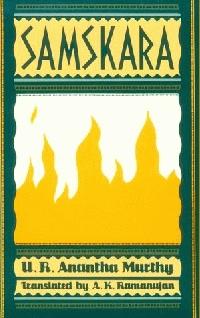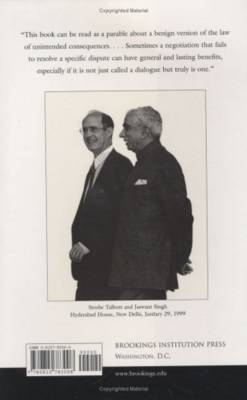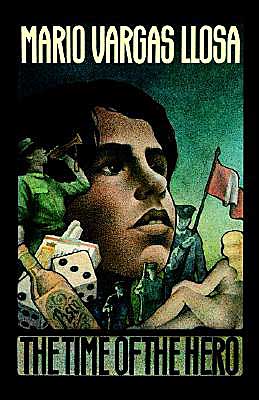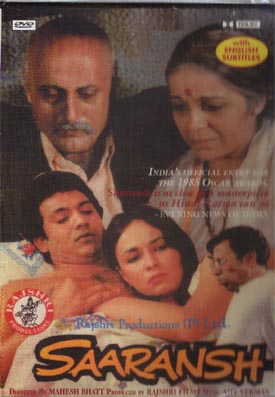Tuesday, December 06, 2005
The Idea of Pakistan
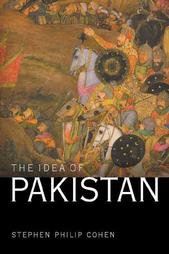
Stephen Cohen's The Idea of Pakistan is a critical look at pakistan,the idea that shapped it,what has become to that country now and whether it can acheive that idea?.
Starting with the idea first, Stephen cohen gives a glimpse of the history behind the creation of pakistan.The idea of pakistan, to create a secular state, to provide a safe heaven for all the indian muslims and a mordern islamic nation. But what has happened now?. Like many he also questions that idea, when so many muslims stayed behind in india and now india having almost same number of muslims in pakistan, the idea itself seem to be a failure.
Talking about history he gives a lot of information.Some of them that intrested me.
This one is about Mohammed Ali jinnah
This one reminded me of hey ram where abhyankher accuses mahatma gandhi as the one who was responsible for the growth of muslim league. In the movie he accuses gandhi as the one who watered a small sapling into a tree with khilafat movement etc.I was wondering why he said that then.There is a reference ot the khilafat movement in the book.After joining the secular indian national congress in 1905,he rose to a leading position as "the ambassador fo hindu-muslim unity".
After the idea he talks about pakistan as a state and how its experiment with democracy failed again and again. In its almost 60 yrs of independence the prime minister office was dismissed many times by the president or the supreme court and was overthrown a few times by the army. Given all these factors and the strong division on Regional lines and ever increasing radical islam can the country hold up??. Stephen answers that question in the rest of the book.Mohandas karam chand gandhi -later known as the mahatma- afterward supported the khilafat movement.This was the first time that a predominately religious issue had been introduced into indian politics. Interestingly two of india's leading muslims, iqbal and jinnah were not involved in the khilafat movement.
He is worried that the combination of ever increaing population groth rate of pakistan( one of the fastest in asia),a very bad education system and a high % of jobless young peoples.On the other hand the goverment instead of making efforts to solve these problems is spending much of its budget in military.
But stephen is not alarmed about the country.He just warns about everything.He says pakistan should stop renting itself out to various countries like USA, china, japan etc and concentrate on imporving its industry.These countries mainly USA are going to do a use and throw pakistan, when USA's intrest in the al qeda and afganisthan vanishes, they are not going to fund pakistan and it will be back to its crisis economy.Being a country which cannot even produce a 'crank shaft' on its own,it will be doomed if it does not concentrate on its economy.
Through the book, you get to know the pshyic of the country.Being a smaller country with a bigger neighbouring enemy it always feels insecure.It feels that india cheated pakistan in kashmir issue and that there honour is at stake there.The countries politician and army had made kashmir as the single point focus to restore its honour.Pakistan's international supporters were ambivalent about democracy too.The american agenda was clear: a pro-western pakistan, a stable pakistan, a prosperous pakistan and a democratic pakistan were all desirable, but in that order.
The bangladesh war, where india skillfully separated east pakistan into a sepearate country called bangladesh has also made pakistan feels threatened by india, its army still harbors the idea that india is out to erase the existence of a pakistan itself. And that's why having nuclear weapons means more to them.Like many other arab and Islamic populations, Pakistanis have found it difficult to establish or retain a modern state.As akbar S.Ahmed notes,Muslims feel that the west having a hand in this outcome, has stripped them of dignity and honor,but they confusingly equate the restoration of honor with violence.
Talking about nuclear weapons he writes these lines.I was totally taken back reading this.The nuclear program thus warped pakistan's real strengths and weakness. The truth was that pakistan's bomb program was a triumph of espionage and assistance from friendly power,not the product of a technologically advanced state.For purpose of deterrence and war fighting the difference is unimportant, but in the context of pakistan's deeper security, political and social problems,the bomb made it possible to perpetuate the delusion that this was a technologically advanced country. strategically it enabled pakistan to put off the day of reckoning with india,by providing the appearance of equality between the two states.
"Terror struck into the heart of the enemies is not only a means, it is the end in itself.once a condition of terror into the opponents heart is obtained, hardly anything is left to be acheived.It is the point where the means and the end meet and merge.Terror is not a means of imposing decision upon the enemy, it is the decision we wish to impose upon him.
The conclusion is derived from reading of a number of quranic passages citing the word "terror".For example , Anfal(Sura 12) is read as "Remember, the lord inspired angels,'Iam with you:give firmness to the believers will instill terror into the hearts of the unbelievers"......
The explanation of terror as a means of warfare helped justify covert pakistani support for militant groups operating in indian-administered kashmir and perhaps india itself.If terror was sanctioned by the quran, then it was a legitimate instrument of state power.This position may not be publicly flaunted, but it is widely held in the army. Many officers draw a connection between the concept of terror and pakistani strategy. In their view, a strategy that fails to strike terror into the heart of the enemy will suffer from "inherent drawback and weakness" and should be reviewed and modified. Further more this standard should be applied to "nuclear as well as conventional wars", thus making terror an adjunct to pakistan's nuclear strategy. Pakistan has an elaborate strategy framework for the use of nuclear weapon....so indeed, has every other nuclear weapons power, the difference being that in pakistan a deterrence strategy that includes the destruction of large populations is also justified in islamic terms as a suitable way of employing "terror" in warfare.
 stephen cohen
stephen cohen
Comments:
<< Home
Strange that it is always outsiders who write about India/Pakistan!
Can a country be secular and (religion-oriented)Islamic?
Post a Comment
Can a country be secular and (religion-oriented)Islamic?
<< Home







